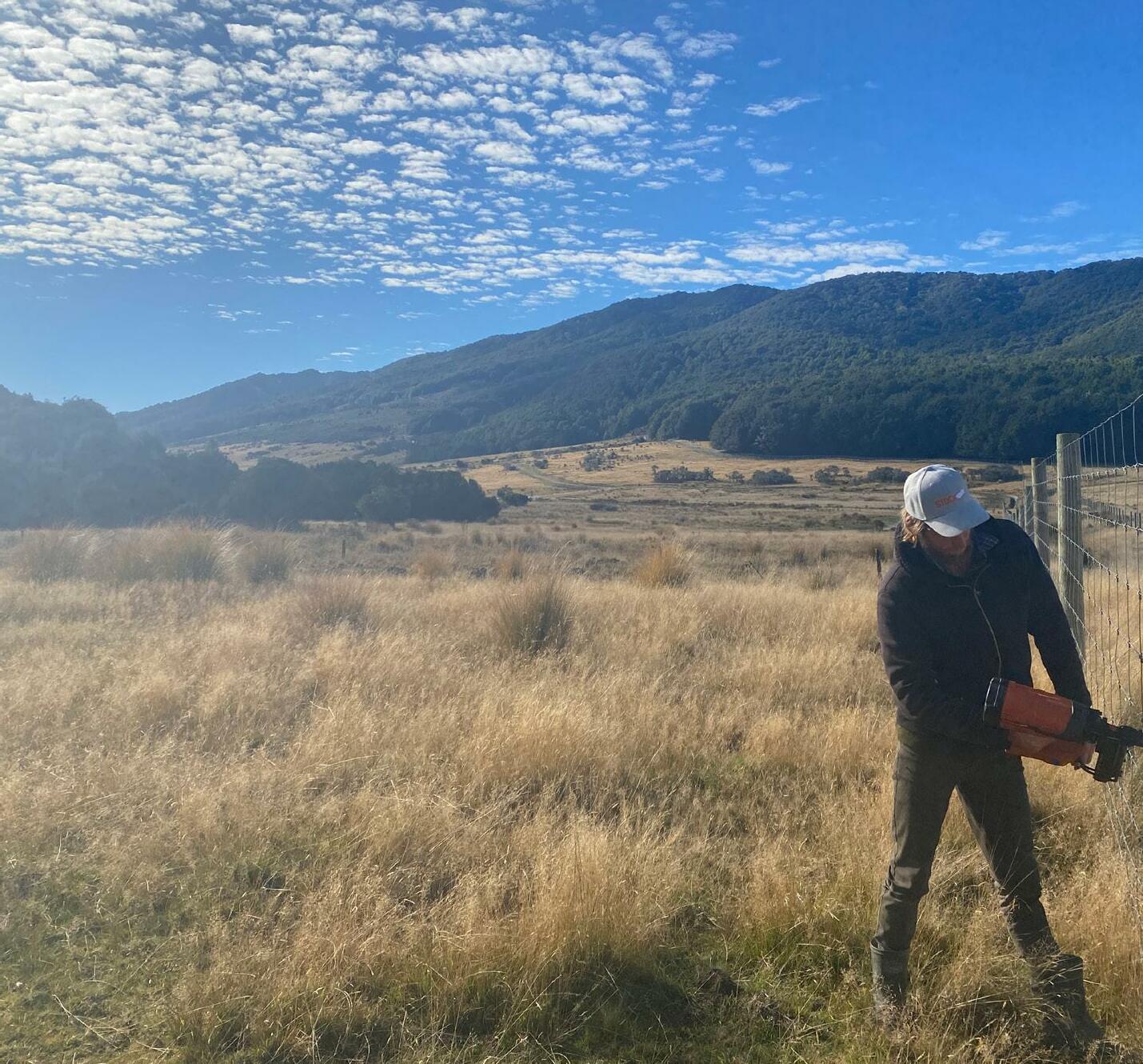
4 minute read
Variety is the spice of life
Jake Burns remembers growing up surrounded by all things fencing and farming – he soaked it all up. At 15, he left school and began working for a local contractor in Matamata.
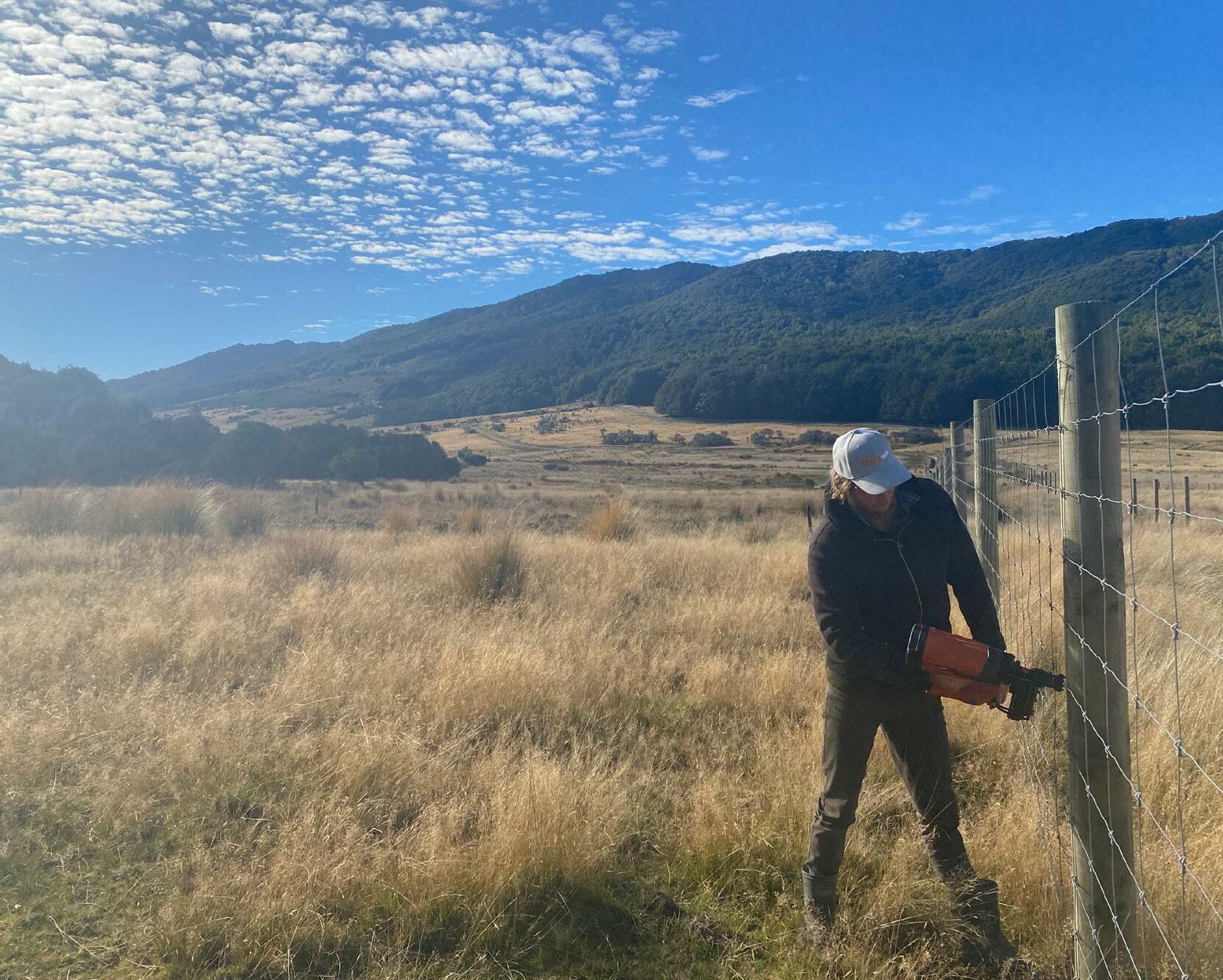
Advertisement
Jake’s dad, Bryce Burns, was a fencing contractor too. Bryce carried on farming but had hung up the wire strainers by the time Jake took up the tools 12 years ago.
Fence work quickly took the teenager across the Waikato, down to Taranaki, over to Gisborne on the East Coast, and South to the Mackenzie Basin, then through the rest of the Mainland. He gained first-hand experience of the variety of terrain, environments, and fencing styles New Zealand has to offer.
“Gisborne is challenging land. Steep rough rugged country in the back blocks. At the time I started there, everything was done by hand because you couldn’t get a lot of machinery up into the hills. It was spade and hammer stuff. Physical work.”
“Now, in Te Anau, the ground is hard. We use rock spikes and rock drills to blast through bedrock. Some people use explosives as well. It is definitely some of the hardest ground that I have fenced in. Steep in places, but mostly rolling hill country down to flat land. It took me some time learning how to fence in this ground coming from the Waikato. Up North, it is soft ground and beautiful soil. Down here, it is hard rocky ground, totally different.”
Over the last decade, Jake has found what techniques work for him and developed his own style.
“When I started fencing, I knew the basics. Then, as I moved around the country, I saw that many fencing contractors had their own ways of doing things. It was a great way to learn a lot of different fencing skills and techniques as well as what fence or wire work might suit one environment more that another. I love that variety.”
“Another great aspect of fence contracting, is that we are a curious bunch. It’s not unusual to have a bit of a yarn and share ideas about different fencing systems or the best tools we’ve used across various projects.”
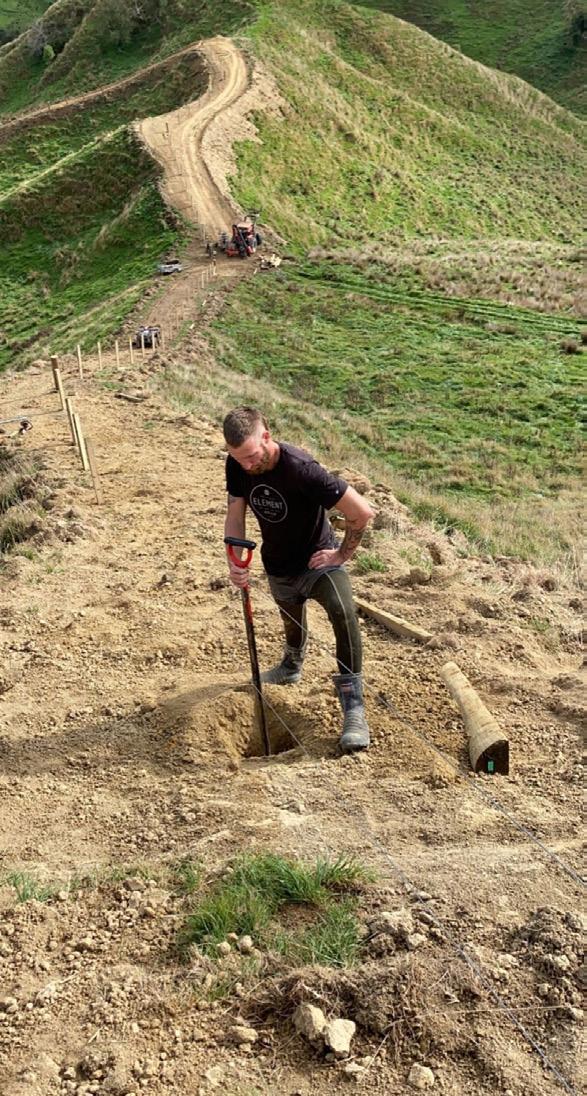
Jake and his partner Chelsea George are now in the Te Anau Basin, having relocated near the end of 2021 while still in the sting of Covid restrictions. Access to the great outdoors, hunting, and the good nature of Southland people were big parts of what drew them in. Jake started JB Fencing in August 2021.
“As a business, I focus on rural fencing and stock yards. I don’t expect to be the biggest fencing contractor in the region, but I want my reputation as a fencer to be built on the quality of my work, efficiency, and reliability.” Greg, Jake’s very first employer, encouraged him to go out on his own.
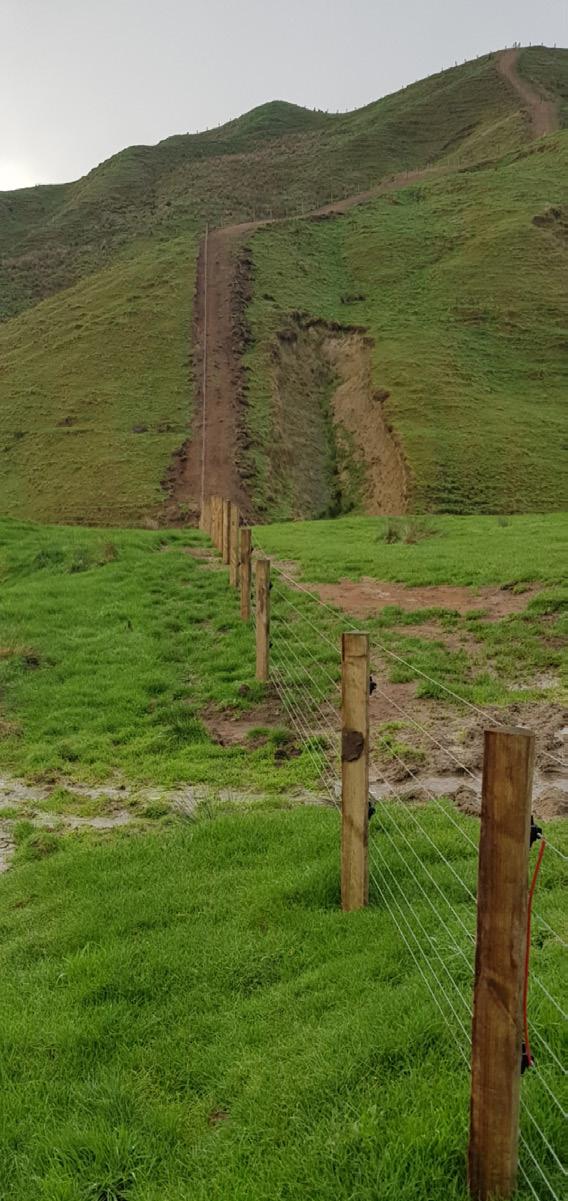
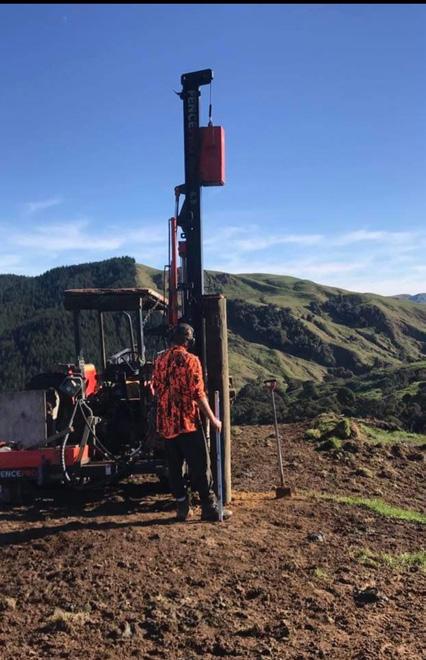
“Greg is a very successful fencer himself. His confidence in my abilities helped me take the leap. I can call him up for advice which has been invaluable. Reaching out and getting to know local farmers and fencing contractors has also been really key to managing these early days of the business. Presently, I’m subcontracting as part of a crew on a big predator fencing project with waratahs and six-foot netting.”
As part of the new business set up, Jake purchased a Stockade ST400i cordless power stapler.
“It is probably my favourite tool – I rate them. I’d used the ST400i a lot during several contracts around the country. I love the speed and reliability. By the time I can staple off two posts with a hammer, using the ST400i I would have already done four and it doesn’t bash up insulators like a hammer will. It will shoot straight. It’s simple and there’s no mucking around.” “ When I started fencing, I knew the basics. Then, as I moved around the country,
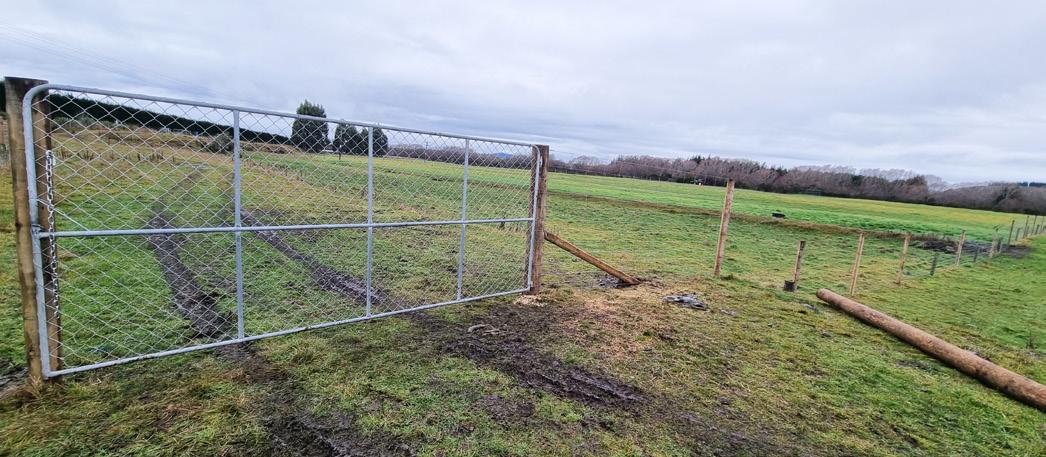
“Also, it’s so easy to use, when you have new staff, you can send them away with the ST400i and you know that the tool will do the job correctly.”
Still, moving into a new business was not without trepidation. Jake had moved to a new region, bought large ticket items including a tractor and post driver, and began building up a client base from zero.
“The reward of starting my own business by far outweighs the risk. For me, it’s the reward of meeting new people, being my own boss and forging my own path, and I’m always still learning. There’s flexibility of working on your own or as part of a crew. I love doing a good job, seeing the finished product, and seeing people happy with my work. My hope is to build the business and take on staff — and I’d like to get some big station project work.”
“Fencing is a good business to be in.”










